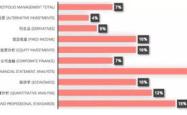理财情况英文怎么说
Assessing your financial situation is crucial for managing your resources effectively and achieving your goals. Whether you're planning for retirement, saving for a big purchase, or simply aiming for financial stability, understanding where you stand financially is the first step. Here, we'll delve into key aspects of evaluating your financial situation.
Define your shortterm and longterm financial goals. Shortterm goals may include building an emergency fund, paying off debt, or saving for a vacation. Longterm goals could involve buying a home, funding your children's education, or retiring comfortably.
If you're unsure about assessing your financial situation or developing a comprehensive financial plan, consider seeking professional guidance. Financial advisors can offer personalized advice based on your unique circumstances, goals, and risk tolerance.
Be sure to choose a reputable advisor who acts in your best interests and adheres to fiduciary standards. Review their credentials, experience, and fee structure before engaging their services.
Begin by analyzing your income sources and expenses. Calculate your total monthly income, including wages, bonuses, investments, and any other sources. Then, list all your expenses, including fixed costs like rent or mortgage payments, utilities, groceries, transportation, and discretionary spending.

Assessing Financial Situations
Assessing your financial situation is an ongoing process that requires diligence and attention to detail. By analyzing your income, expenses, assets, liabilities, savings, investments, goals, and risks, you can make informed decisions to improve your financial wellbeing.
Regularly monitor your progress, adjust your strategies as needed, and seek professional guidance when necessary. With careful planning and prudent financial management, you can work toward achieving your financial aspirations and securing a brighter future.
Title: Assessing Financial Situations
Assess your exposure to financial risks. Evaluate your insurance coverage, including health, life, disability, home, and auto insurance. Determine whether your coverage levels are adequate to protect your assets and loved ones in the event of unforeseen circumstances.
Next, assess your assets and liabilities. Assets include cash, savings, investments, real estate, and valuable possessions. Liabilities encompass debts such as mortgages, car loans, student loans, and credit card balances.
Calculate your net worth by subtracting your total liabilities from your total assets. A positive net worth indicates that your assets outweigh your debts, while a negative net worth suggests the opposite. Monitoring changes in your net worth over time can gauge your financial progress.
Evaluate your savings and investment portfolio. Determine how much you're saving each month and where those funds are allocated. Are you contributing to retirement accounts such as a 401(k) or IRA? Are you investing in stocks, bonds, mutual funds, or other vehicles?
Compare your total income to your total expenses. Ideally, you should have a surplus, allowing you to save and invest. If your expenses exceed your income, consider where you can cut back to achieve a balanced budget.
Additionally, consider potential risks to your income and investments, such as market volatility, job loss, or unexpected expenses. Having an emergency fund can provide a financial buffer during challenging times.
Consider the diversification of your investments to manage risk effectively. Reassess your investment strategy periodically based on your financial goals, risk tolerance, and market conditions.









